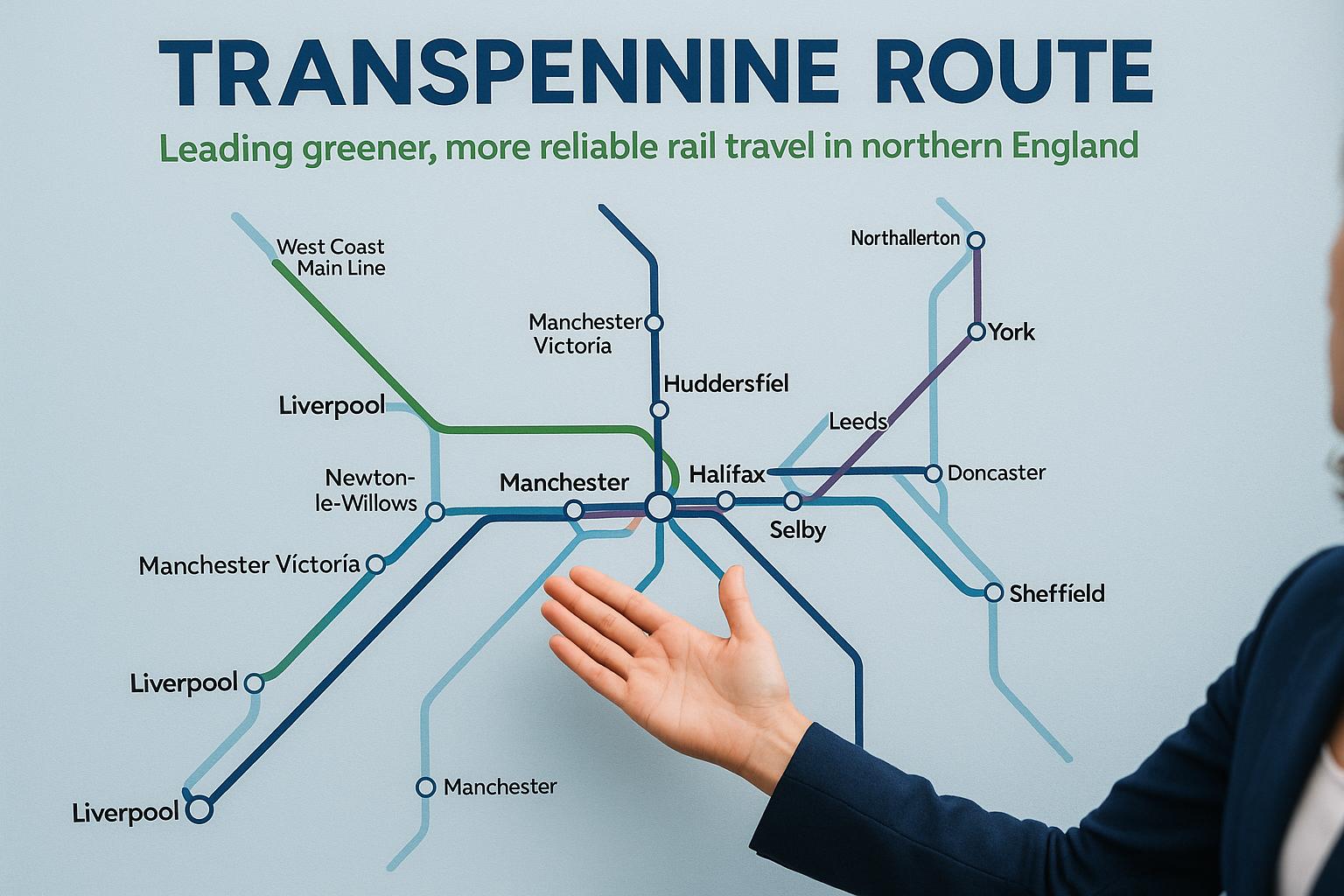Lauren Rodgers, Area Services Manager at Network Rail, plays a pivotal role as the ‘voice’ of the North and East rail route, ensuring that the needs of this key region are effectively represented across the wider business. Her work involves complex problem solving, programme management, and fostering collaboration among various teams. She also engages actively with unions and external partners to align objectives and enhance service delivery outcomes, balancing strategic planning with operational performance reviews. Despite the demands of her senior role, Rogers also manages a busy family life with two young sons, emphasising the importance of flexible working and teamwork at home to balance professional and personal commitments.
Inspired by her father, who instilled in her the values of hard work and the transformative power of engineering, Rodgers chose to specialise in rail because of its potential to deliver enduring benefits to communities and the environment. She highlights the sector as a global career path that supports sustainable growth through continuous investment and innovation. Among current projects, she considers the TransPennine Route Upgrade (TRU) particularly exciting, as it is a landmark venture improving connectivity and fostering greener travel between Manchester and York. This aligns with broader ambitions to modernise the railway network and transition towards a low-carbon future, a cause also supported by complementary projects such as East West Rail linking Oxford and Cambridge.
The TransPennine Route Upgrade itself is a substantial programme of works encompassing electrification, track renewals, and power system enhancements. Contractors like BAM have recently been appointed to deliver the next phase of the TRU West project, securing £800 million of contracts within the wider £2 billion alliance. This phase focuses on boosting the Manchester-York corridor with faster and more sustainable services. Meanwhile, VolkerRail is undertaking essential upgrades between Leeds and York, targeting completion by 2028. Collaboration among industry leaders such as Arup, Siemens, and Amey further bolsters efforts to improve capacity, reliability, and sustainability of this critical trans-Pennine link. These upgrades aim to reduce carbon emissions sharply—installations of electric overhead lines between York and Church Fenton alone are expected to cut up to 87,000 tonnes of CO2 annually, simultaneously improving air quality by decreasing car journeys by millions.
Rodgers also addresses common public misconceptions about the railway system, noting that railways are highly complex, interdependent networks rather than simple tracks with trains. Infrastructure elements like signalling, rolling stock, staffing, and safety must work in harmony to prevent network-wide delays. This complexity explains why upgrading or repairing parts of the infrastructure requires careful planning to minimise disruption and ensure safety. She advocates for clearer communication about these challenges alongside continued investment to modernise rail systems to win public trust and enable a modal shift towards more sustainable transport.
Central to achieving this shift, Rodgers argues, is making rail the most convenient, reliable, and environmentally friendly choice through investment in modern infrastructure, seamless connectivity, affordable fares, and frequent, accessible services. Long-term government commitment and policies prioritising public transport over car dependency are vital to this goal. Furthermore, as a female chartered engineer balancing significant leadership responsibilities with motherhood, Rodgers takes pride in being a visible role model within the industry, helping inspire greater diversity and inclusion. Her flexible working arrangement illustrates how senior roles can be compatible with family life, contributing to a more inclusive professional environment.
Digital technology also plays a transformative role in Rodgers’ work at Network Rail, which is undergoing significant digital transformation across its asset and maintenance divisions. Smarter, integrated digital solutions promise to streamline operations, enable predictive maintenance, and improve connectivity among teams, ultimately enhancing service reliability and passenger experience.
Rodgers’ ambition to become professionally qualified was driven by a desire for recognition, credibility, and belonging within a respected engineering community. Her experience highlights the importance of strong institutional support from both her employer and the Institution of Civil Engineers, which provided advice, mentorship, and ongoing professional development. Achieving chartered status has bolstered her confidence and authority, opening doors to senior roles and enabling her to lead complex projects with conviction.
Away from work, Rodgers enjoys outdoor activities with her family and their cocker spaniel in their new Northumberland home, seeking a healthier work-life balance amidst beautiful surroundings. She also shares a personal anecdote about building a detailed Lego London Bus set, with plans to later construct the iconic Star Wars Millennium Falcon as a family project, underscoring her commitment to blending professional dedication with meaningful personal experiences.
📌 Reference Map:
- Paragraph 1 – [1], [2]
- Paragraph 2 – [1], [2], [3], [4], [5], [6], [7]
- Paragraph 3 – [1], [2], [3], [4], [5], [6], [7]
- Paragraph 4 – [1], [2]
- Paragraph 5 – [1], [2]
- Paragraph 6 – [1]
- Paragraph 7 – [1]
Source: Noah Wire Services
